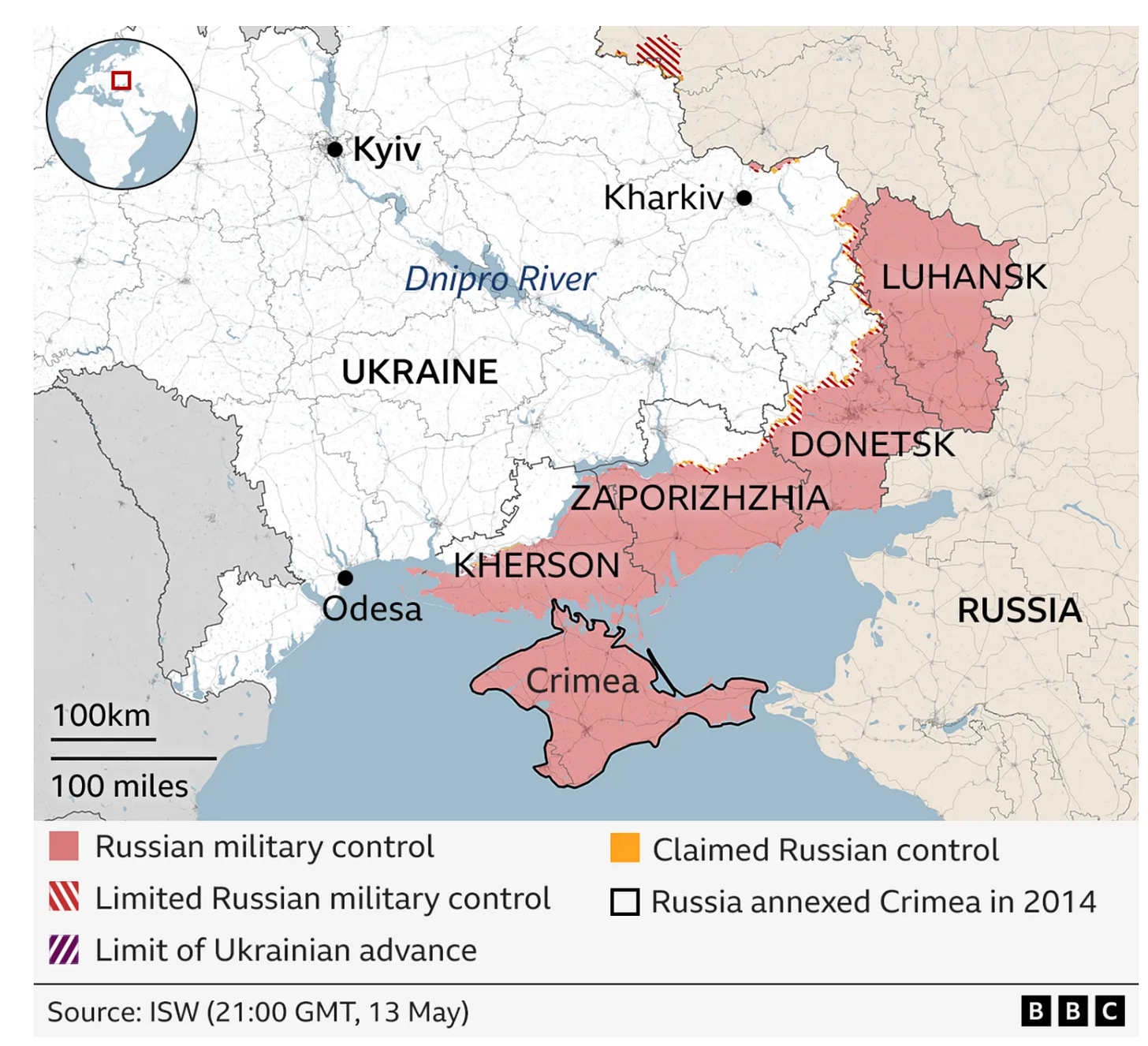Yesterday, Washington Post columnist David Ingatius published a columned titled “An overarching Putin refused to take yes for an answer”. Ignatius is known to be immersed DC foreign policy establishment, generally representative of elite opinion coming from said apparatus, however delusional it may be (e.g., vocally supporting the invasion of Iraq as a good idea and later having to apologize to his readers for being so wrong.)
A good part of the (bipartisan) foreign policy establishment wants to continue escalating the conflict, sending ever more weapons to Ukraine and imposing yet more sanctions on Russia under the belief that this may finally lead to the tipping point where Russia’s army collapses and Ukraine retakes all territory it has lost. With the Europeans widely sharing this assessment - despite all evidence on the ground or any reflection on how previous rounds of weapons shipments and sanctions did not achieve these aims - there is confusion on why Putin is not agreeing to President Trump’s efforts to secure an at least temporary ceasefire while a final agreement is worked out.
Ignatius assesses the situation as thus:
Administration officials offered a deal that seemed to meet Putin’s minimum goals: If Russia agreed to a ceasefire, it could keep the territory it occupied in Crimea and four other regions. Moreover, Ukraine wouldn’t be allowed to join NATO after the war, and sanctions against Russia would be eased. Rather than a pariah, Putin would become an economic partner for the United States.
But an arrogant Putin rejected Trump’s deal. He refuses to accept a ceasefire until after negotiations about the war’s “root causes,” where Russian sources say he plans to demand limits on Ukraine’s military and political independence. Putin’s version of a peace deal would give him control over Ukraine that he hasn’t been able to win on the battlefield.
I think what Ignatius and politicians in both sides of the Atlantic fail to appreciate or understand is that whether one agrees morally with what Russia is doing, it is probably logical that it reject Trump’s outlines of a deal and keep the war going.
But realizing that logic would necessitate disabusing oneself of the idea that Ukraine can win with just a little more help from the West. John Mearsheimer recently reflected that this notion is “positively delusional”, noting that estimates have the Russian army outnumbering Ukraine’s by something like a 4:1 or 3:1 ratio. That in itself is possible because Russia’s population is three or four times the size of Ukraine’s. It has immense resources to draw upon and has not, despite the best efforts of the West over the past three years, collapsed - nor is it even close to.
Why did Putin reject Trump’s deal? Its not arrogance, its because Russia set clear goals for the war that it believes it can achieve. One of those is full control of the four oblasts (provinces) of eastern Ukraine that it announced formal annexation of in 2022 (those oblasts being Luhansk, Donetsk, Zaporizhzhia, and Kherson.)
As the map above shows, at this moment Russia controls most but not all of those oblasts. Putin has every reason to believe that time is on his side and not the Ukrainians - and that if the Russians keep pushing they can take full control of the territory. It looks unlikely - though not impossible - that Trump is not going to ask Congress to pass another big Ukraine aid bill once the resources allocated in the August 2024 package run out. And despite their best efforts, the Western Europeans are unlikely to fill that void.
We’re in a situation where Russia not only believes it is winning, it justifiably believes Ukraine will further weaken in the year ahead as Western aid runs out. Then there is the other surprisingly unacknowledged rationale about why Russia wouldn’t at least agree to a temporary ceasefire. If Russia believes that Ukraine is weakening and it is gaining the upper hand, why would they agree to a time out? If you are in a cage match beating down an opponent who you see as losing energy and strength, and you believe yourself close to victory, the last thing you would want to do is give him a time out to catch his breath, get his bearings and regroup for when the fight resumes.
With that in mind, I don’t see any arrogance about Putin’s rejection of Trump’s pressure for a ceasefire. It makes perfect sense for Russia to keep the momentum on their side and push forward to get full control of the regions they claim. It is a painful reality to face but covering one’s eyes to that - and denying what is probably an inevitable outcome - doesn’t help anyone. Least of all the Ukrainians.


